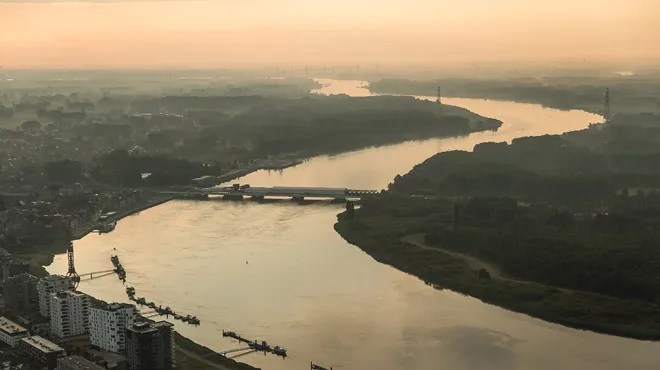The Flemish government has promised to use all means at its disposal to make the French company responsible for the leak of tonnes of sugar-beet pulp into the Scheldt river pay for the clean-up.
The pollution took place in northern France, where a dyke collapsed on land owned by sugar producer Tereos, allowing thousands of tonnes of pulp to flow into the river. As a result, the pulp began drawing oxygen out of the water, suffocating fish.
Civil defence authorities across the border in Flanders installed pumps to pump oxygen back into the water, while volunteers rescued individual fish with buckets to evacuate them to a nearby pond.
However the damage caused to biodiversity by the leak in Wallonia alone could take two to three years to mend. The river covers 36km in Wallonia before it becomes the border with Flanders.
Walloon authorities did not deploy oxygen pumps, which means the damage in the region was worse than across the border. In addition, the French authorities did not inform their Walloon counterparts, who were alerted to the problem by a phone call from a member of the public, tens days after the leak occurred.
Now the Flemish government has pledged to seek redress from the French factory, environment minister Zuhal Demir told the Flemish parliament’s environment committee this week. The claim will cover the cost of the pumps initially, and would later include recompense for any costs of restoring biodiversity later.
She also holds the French authorities responsible, she said.
“There are international warning systems for this kind of case, which France did not use. It is incomprehensible," she said.
Elsewhere, the mayor of Tournai, Paul-Olivier Delannois (PS), has sent a letter to French president Emmanuel Macron to express him “incomprehension” at the failure of the French authorities to notify their neighbours of the accident. The river flows through the centre of Tournai.
As a result, he wrote, “Tens of thousands of tonnes of fish have died in this part of the river, according to the Walloon Region. That is only the visible part of this ecological tragedy which will have serious consequences for the future of the biodiversity of our region.
“I find it difficult to understand why the French authorities, aware of this situation from April 9, did not inform the authorities of our country? How to explain such negligence from a neighbour, an ally and a European partner?” he wrote.
Alan Hope
The Brussels Times

